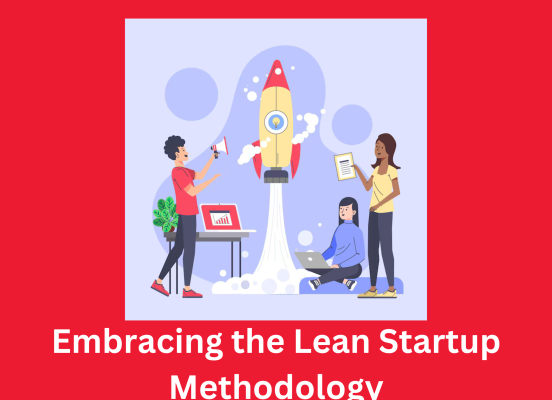

In brand new dynamic commercial enterprise panorama, startups face severe opposition, restricted sources, and unexpectedly evolving marketplace situations. To navigate these demanding situations and maximize their probabilities of achievement, entrepreneurs are more and more turning to the principles of the Lean Startup method. This creative approach, made popular by Eric Ries, highlights the need of creating a firm with little funding and iterating continuously depending on customer feedback. This is a very detailed lecture which discusses what constitutes the Lean Startup method, and how market experts can rely on it to create scalable businesses.
Understanding the Lean Startup Methodology:
At its middle, the Lean Startup technique advocates for a systematic and iterative technique to constructing and developing a startup. Central to this technique is the idea of proven getting to know, which involves trying out hypotheses, gathering comments from customers, and the usage of information-pushed insights to make informed selections.
Minimum Viable Product (MVP):
Entrepreneurs are encouraged to expand a main model in their goods or services that caters to the needs of early adopters, rather than aiming for perfection. In merely a moment or very shortly after it, new companies can gain insights that are priceless, prove specific ideas true or false and go through the same process of repeated testing by launching a minimum viable product (MVP) on the market immediately.
With this iterative approach business owners are able to revise their offerings step by step and taking into account individual opinions get closer to product-market fit.
Customer Development:
As per Lean Startup strategies, customer development is critical when it comes to determining how a business should proceed. Entrepreneurs are being entreated to engage with clients proper away to understand their needs, pain points, and answers as opposed to depending solely on gut feeling or inner assumptions. In order to get a grasp of user behavior better and raise the level of their services, entrepreneurs are advised to use methods such as user interviews, surveys and usability testing to understand customer values. By involving their customers in the design process of a product, entrepreneurs are likely to come up with things that correspond best with them.
Pivot and Persevere:
Startups are a given that will go through obstacles and failures while building a business. In according to the Lean Startup meth, it is important that an entrepreneur has a scientific approach and daring enough to stand for something if it is factual. Responsive to a market´s fresh- information or comments, pivoting involves making a massive shift in the startup´s strategy, offering or plan. Nonetheless, it means sticking to the same ways with irrelevant adjustments. Startups can overcome risk by making small positive changes in their strategies till they maintain sustainable growth.
Continuous Innovation:
Startups should focus constant innovation in the modern, fiercely competitive market landscape in order to stay ahead of the curve.By employing the method of The Lean Start-up, a business nurtures an environment that cherishes experimentation and mastering as well as treats failure as a chance for growth. Unearthing revelations might be done by startups from within their ranks through probing unusual ideas and doubting the conventional wisdom. Moreover, via leveraging lean ideas together with rapid prototyping and iterative development, startups can boost up the tempo of innovation and deliver cost to clients more efficiently.
Operations and Resource Allocation:
From ameliorating the commodity and gathering reviews from clients, Lean Startup methodology emphasizes on prudent resources utilization and running a tight set up while there is need to do so. It is advisable for startups to have a saving culture giving precedence to critical tasks and having resources at hand all the time. Startups may prolong their runway and increase operational efficiency by focusing on high-impact projects and reducing waste. It might also be the case that companies can (also) enhance their breakthrough faster if they use systems and innovations meant to simplify and broaden their activities (scaling up), thus helping them carry out more work using fewer inputs.
The Lean Startup methodology provides a potent foundation for establishing and expanding companies in the fast-paced, modern workplace. Through a commitment to fast experimentation, consumer validation, and continuous innovation, marketers may minimize risks, optimize assets, and raise the likelihood of long-term success. The Lean Startup approach provides a framework for overcoming uncertainty, capturing opportunities as well as setting prices for consumers and stakeholders when starting a new business or reviving an existing one.